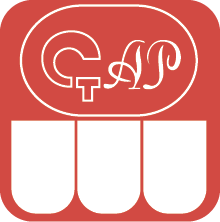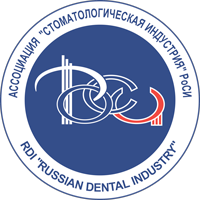DOI:
10.37988/1811-153X_2020_2_9Alternative tooth restoration
Downloads
Abstract
Purpose of the study is the development and implementation of a computer program to recreate the occlusal surface of the teeth, taking into account the individual characteristics of the dentition of each patient. Objectives: 1) study the dimensional characteristics of the occlusal surface of the teeth in patients with a high level of resistance to caries at the age of 20 to 30 years; 2) identify the correlation between morphometric indicators of the occlusal surface of the teeth in patients; 3) based on the data obtained, create a computer program to recreate the occlusal surface of the teeth. Materials and methods. To solve the tasks, a survey was conducted of 25 practically healthy patients of the Caucasian race aged 20 to 30 years, with intact teeth living in the city of Moscow, a total of 700 teeth were examined. Results. A correlation (95%) between the dimensional characteristics of the occlusal surface of the teeth was revealed. A certificate of state registration of a computer program was received No. 2018611780 of 02/07/2018. An algorithm has been developed for restoring lost tissues of the occlusal surface of teeth with composite materials, taking into account a computer program. Conclusions. Based on the obtained data on intact teeth, a correlation was revealed between the occlusal surface of the teeth, which allowed us to develop a computer program and algorithm of actions, the effectiveness of which was confirmed by the positive dynamics of clinical and aesthetic indicators, an increase in the coefficient of masticatory efficiency.
Key words:
aesthetic dentistry, computer program, restoration, correlationFor Citation
References
- Arutyunov A.S., Lebedenko I.Yu., Arutyunov S.D., Zubov V.S., Chumachenko E.N. Optimization of restoration of decayed teeth with pin designs. — Dentistry. — 2005; 6: 40—3 (In Russ.).
- Daurova F.Yu., Vayts S.V., Vayts T.V. Computer optimization of the process of tooth restoration in the clinic of therapeutic dentistry. — Bulletin of the Peoples’ Friendship University of Russia. Series: Medicine. — 2011; 3: 136—9 (In Russ.).
- Lomiashvili L.M., Vayts S.V., Gateluk O.V., Pogadaev D.V. Modern approaches to the restoration of the crown of teeth using computer simulation. — Dental Market. — 2010; 1: 48—51 (In Russ.).
- Lutskaya I.K., Novak N.V., Danilova D.V. Characterization of aesthetic parameters of the tooth. — Dentistry. — 2005; 6: 23—7 (In Russ.).
- Ryakhovsky A.N., Gavrilov L.L. Analysis of the accuracy of matching dentitions using occlusal registrations. — Institute of Dentistry. — 2009; 3: 28—9 (In Russ).
- Ukhanov M.M., Ryakhovsky A.N. Restoration nanomaterials in dentistry. — Dentistry. — 2016; 2: 73—8 (In Russ.).
- Nazarian A. Systematic Approach to Full-Mouth Reconstruction. — Dent Today. — 2015; 34 (6): 92, 94, 96—7. PMID: 26470591
- Shkarin V.V., Dmitrienko S.V., Porfiriadis M.P. Algorithm for forecasting the shape and size of dental arhes front part in case of their deformations and anomalies. — Archiv Euro Medica. — 2017; 7 (2): 105—10.
- Perrin P., Zimmerli B., Jacky D., Lussi A., Helbling C., Ramseyer S. [The Stamp Technique for Direct Composite Restoration]. — Schweiz Monatsschr Zahnmed. — 2013; 123(2): 111—29 (In French, German). PMID: 23512289
- Scolavino S., Paolone G., Orsini G., Devoto W., Putignano A. The Simultaneous modeling technique: closing gaps in posteriors. — Int J Esthet Dent. —2016; 11 (1): 58—81. PMID: 26835524









